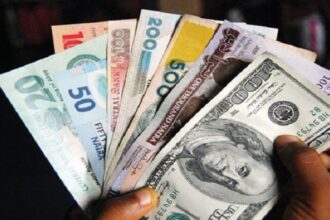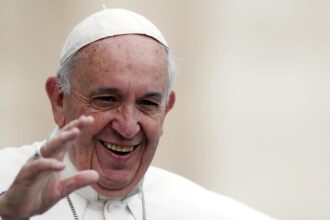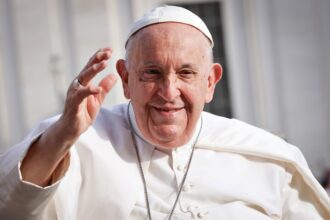South Korea’s opposition parties Wednesday submitted a motion to impeach President Yoon Suk Yeol over the shocking and short-lived martial law that drew heavily armed troops to encircle parliament before lawmakers climbed walls to reenter the building and unanimously voted to lift his order.
Impeaching Yoon would require the support of two-thirds of parliament and at least six justices of the nine-member Constitutional Court would have to support it to remove him from office. The motion, submitted jointly by the main opposition Democratic Party and five smaller opposition parties, could be put to a vote as early as Friday.
Yoon’s senior advisers and secretaries offered to resign collectively and his Cabinet members, including Defense Minister Kim Yong Hyun, were also facing calls to step down, as the nation struggled to make sense of what appeared to be a poorly-thought-out stunt.
In his speech announcing the abrupt order Tuesday night, Yoon vowed to eliminate “anti-state” forces and continued to criticize parliament’s attempts to impeach key government officials and senior prosecutors. But martial law lasted only about six hours, as the National Assembly voted to overrule Yoon and the declaration was formally lifted around 4:30 a.m. during a Cabinet meeting.
The liberal opposition Democratic Party, which holds a majority in the 300-seat parliament, said Wednesday that its lawmakers decided to call on Yoon to quit immediately or they would take steps to impeach him.
“President Yoon Suk Yeol’s martial law declaration was a clear violation of the constitution. It didn’t abide by any requirements to declare it,” the Democratic Party said in a statement. “His martial law declaration was originally invalid and a grave violation of the constitution. It was a grave act of rebellion and provides perfect grounds for his impeachment.”
Impeaching him would require support from 200 of the National Assembly’s 300 members. The Democratic Party and other small opposition parties together have 192 seats. But the rejection of Yoon’s martial law declaration in a 190-0 vote included the votes of 18 lawmakers from Yoon’s ruling People Power Party, according to National Assembly officials.
If Yoon is impeached, he’ll be stripped of his constitutional powers until the Constitutional Court rules. Prime Minister Han Duck-soo, the No. 2 position in the South Korean government, would take over his presidential responsibilities. As calls mounted for Yoon’s Cabinet to resign, Han issued a public message pleading for patience and calling for Cabinet members to “fulfill your duties even after this moment.”
The Constitutional Court has only six justices following three retirements, which is one below the minimum seven needed to handle a presidential impeachment case, requiring lawmakers to speed up the process of naming new justices.
Yoon’s martial law declaration, the first of its kind in more than 40 years, harkened to South Korea’s past military-backed governments when authorities occasionally proclaimed martial law and other decrees that allowed them to station combat soldiers, tanks and armored vehicles on streets or at public places like schools to prevent anti-government demonstrations. Such scenes of military intervention had not been seen since South Korea achieved a genuine democracy in the late 1980s until Tuesday night.
After Yoon’s declaration, troops carrying full battle gear, including assault rifles, tried to keep protesters away from the National Assembly as military helicopters flew overhead and landed nearby. One soldier pointed his assault rifle at a woman who was among protesters outside the building demanding that the martial law be lifted.
It wasn’t clear how the 190 lawmakers were able to enter a parliamentary hall to vote down Yoon’s martial law decree. Opposition leader Lee Jae-myung livestreamed himself climbing over the wall, and while troops and police officers blocked some from entering they didn’t aggressively restrain or use force against others.
No major violence has been reported. The troops and police personnel were later seen leaving the grounds of the National Assembly after the parliamentary vote to lift the martial law. National Assembly Speaker Woo Won Shik said: “Even with our unfortunate memories of military coups, our citizens have surely observed the events of today and saw the maturity of our military.”
Han, the People Power Party leader, demanded that Yoon explain his decision and fire Defense Minister Kim Yong Hyun, who he said recommended the martial law decree to Yoon. The Defense Ministry has not commented.
Under South Korea’s constitution, the president can declare martial law during “wartime, war-like situations or other comparable national emergency states” that require the use of military force to restrict the freedom of press, assembly and other rights to maintain order. Many observers question whether South Korea is currently in such a state.
The constitution also states that the president must oblige when the National Assembly demands the lifting of martial law with a majority vote.
Some experts say Yoon clearly violated the constitution in how he imposed martial law. While martial law allows “special measures” to restrict individual freedoms and the authority of agencies and courts, the constitution does not permit the functions of parliament to be restricted. But in following Yoon’s declaration on Tuesday, South Korea’s military proclaimed parliamentary activities were suspended and deployed troops to try to block lawmakers from entering the National Assembly.
Yoon’s government and ruling party have been embroiled in an impasse with the Democratic Party over next year’s budget bill and a Democratic Party-led attempt to impeach three top prosecutors. (AP)
The post South Korea’s opposition parties submit a motion to impeach President appeared first on Newswire.




